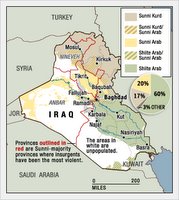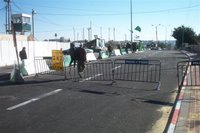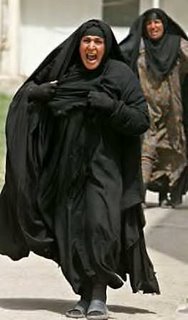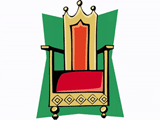
On the one hand, you will be relieved to know that the Justice Department is still on the job protecting us from whistle blowers. They are opening a criminal inquiry into the original leak of information about the NSA practice of spying on Americans. According to The New York Times, reporter Scott Shane,
The investigation began in recent days after a formal referral from the security agency regarding the leak, federal officials said, speaking on the condition of anonymity because of the secrecy of the investigation.
The investigation will probably go very smoothly since the government has a lot of very sophisticated tools to use to find out what all the people who knew about the program have said and done. The government's data mining will have to cover a number of people and a long time, however, since the NYT held on to the story for years before publishing it.
On the other hand, not everyone agrees that protecting us all so thoroughly is what we need. As a matter of fact, there are more than just a few "nuts" who believe that it is actually illegal. According to LA Times reporters David Savage and Bob Drogin*, the legality of the wiretaps remains in question. To quote from their December 18 story,
President Bush gave one answer . . . saying he was justified in ordering the National Security Agency to spy on "people with known links to Al Qaeda and related terrorist organizations." But a Supreme Court decision more than 30 years ago raises questions about Bush's position. And several legal experts note that a special court exists that could rule on the surveillance requests. As a result, the controversy over the program Bush approved is not likely to end quickly.
The year 2005 marked the year that the nation began to wake up to what is going on with the erosion of protection of citizen's civil liberties. The NSA story was one instance of this awakening. The proposed renewal of the US Patriot Act has been another. Republican leaders may have expected that the legislation would be passed without question, but there were enough votes to hold it up, despite threats from our current president. However, according to CNN, the president finally relented Friday, signing an extension of the law that will allow for needed modifications.
President Bush Friday signed legislation extending key provisions of the
anti-terrorism USA Patriot Act until February 3, despite earlier objecting to
anything short of a permanent renewal.
Greg McNeal at "Law, Terrorism and Homeland Security" posts this article (12/18/05) with a large amount of background (in the linked article below the quote I included here) about the claims of inherent executive power. I quote from the the introduction,
Inherent Powers as Authority for the President's Domestic Spying Power???
Secretary of State Rice appeared on Meet the Press this morning and made an uncharacteristically unpersuasive case for the President's actions regarding his authorization of "domestic spying." Russert repeatedly asked her to cite the authority upon which the President relied when making his determination to authorize the "domestic spying." Rice's response was that the President relied upon Constitutional authority and statutory authority/FISA authority, but as Senator Levin pointed out later in the program, she did not cite any specific provision of the
Constitution and FISA requires an application to the FISA court. The administration likely is relying upon their view of inherent Presidential powers which some scholars suggest are a fundamental Constitutional principle that has existed since the founding. This is a controversial position. Below I have briefly included some arguments which the administration may make in the coming days. These views are subject to a ton of criticism and debate, which I welcome.
This matter is by no means over. When Congress comes back from their holiday recess, I fully expect there to be hearings with many questions for the administration from thoughtful lawmakers.
*Thanks to Greg McNeal @ Law, Terrorism and Homeland Security.com for the original link to this article.Tags: civil liberties Patriot Act domestic surveillance terrorism
















